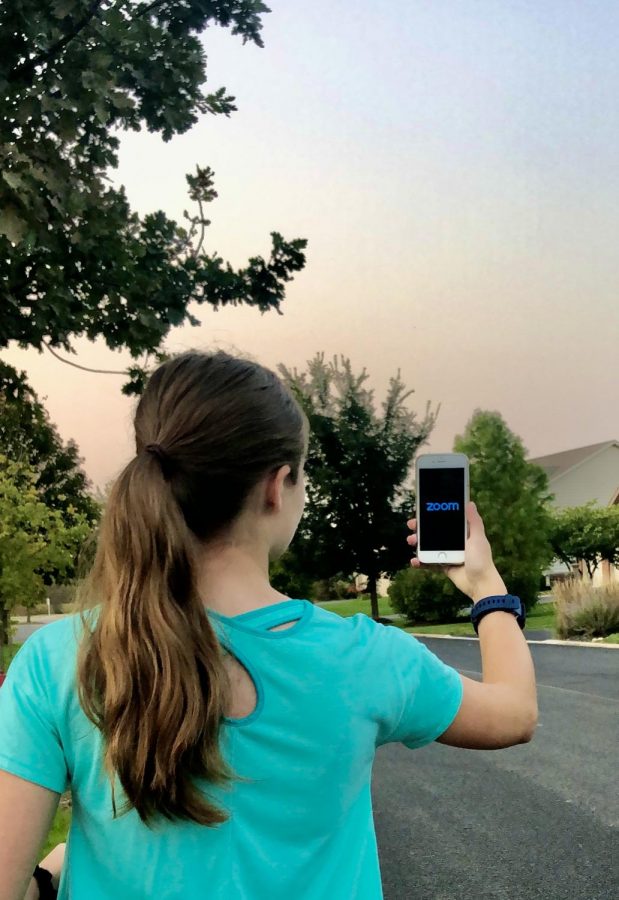Physical education teachers persevere through e-learning
October 6, 2020
Monday morning, the lights flicker on as she walks into her home gym. Surrounded by various exercise machines and equipment, she boots up her laptop and prepares for another week of remote learning.
Kristine DeBolt, a physical education teacher at the high school, has 14 years of experience under her belt. She loves connecting with her students and educating her Recreational Sports Blended and Group Fitness Blended classes on the importance of staying active. However, she never expected Zoom would be her new classroom.
“I wasn’t worried,” DeBolt said. “I knew and I was super confident that I could continue to do my job 1,000% and maybe even better.”
A combination of live workouts both inside and outside, Flipgrid videos, and competency-based assignments completes the new curriculum. According to DeBolt, her students are doing amazing and going above and beyond in their work. Unfortunately, now that everyone is coming out of the “honeymoon phase” of e-learning, a new problem has emerged.
“I need to do something to spice it up,” DeBolt said. “I’m brainstorming that and how I can make it better by introducing something new.”
She hopes for positive feedback after every assignment and workout, but it can be hard when she is not in the same room as her students. This is an issue a lot of teachers are facing during remote learning, especially physical education teachers who rely on that interaction to judge fitness competency.
“I try to get kids to speak, but it’s real hard. They all want to have the mute on,” said Jennifer Heuck, head of the physical education department. “You’re feeling like, how do I connect with them?”
Now that physical education classes have started doing social-emotional lessons on Mondays, it is even more important for teachers like Debolt and Heuck to touch base with their students. According to Heuck, it can be concerning when there is a lack of immediate feedback, which can otherwise be easily gathered in the classroom.
“Even though we’re doing these [SEL] assignments, I hope kids are finding it okay to reach out to us when something may not seem right,” Heuck said.
With the elementary schools going to hybrid learning, DeBolt is now worried about the elimination of non-core classes such as art, music, and physical education. She wants the importance of physical education to be considered or the outlet for both mental and physical health education could soon be gone.
“I want to do my job,” DeBolt said. “I love it, and I think it’s really important.”



